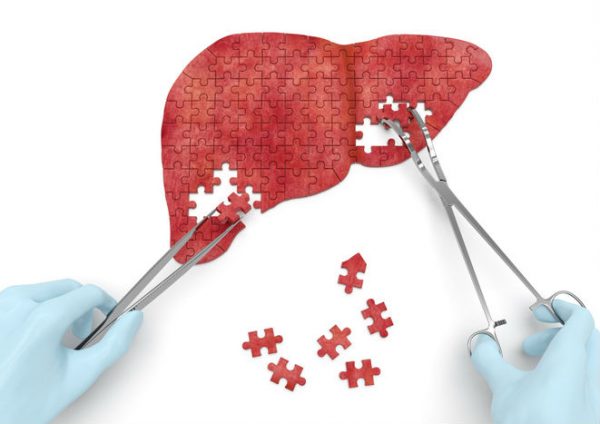
Although there is not yet any Food and Drug Administration-approved drug for treating nonalcoholic steatohepatitis, the agency on Thursday issued a draft guidance for companies developing drugs among NASH patients with cirrhosis who do not yet display symptoms.
The draft guidance, “Nonalcoholic Steatohepatitis with Compensated Cirrhosis: Developing Drugs for Treatment,” was announced in the Federal Register on Friday. Public comment is being accepted through Aug. 6. It accompanies a draft guidance issued last year for NASH with liver fibrosis, but without cirrhosis.
The guidance lays out considerations for companies developing clinical trials for NASH with compensated cirrhosis, which occurs when there is scarring of the liver, but patients still appear healthy.
In particular, the agency said it will likely only evaluate drugs for compensated NASH under the traditional approval pathway, not accelerated approval. This is because it said “currently there is insufficient evidence to support the use of histological improvements as a surrogate endpoint that is reasonably likely to predict clinical benefit to support accelerated approval.”
NASH is a growing global health concern, rising in tandem with the rise in Type 2 diabetes and obesity. According to some reports, the NASH market’s value is expected to jump from $1.17 billion in 2017 to more than $21 billion by 2025.
Although there are not yet any approved drugs for the disease, New York-based Intercept Pharmaceuticals could become the first to win such an approval after the announcement in February of positive Phase III data from its REGENERATE study of Ocaliva (obeticholic acid) in NASH with liver fibrosis, meaning Stage 2 or Stage 3. Intercept is running another Phase III study, REVERSE, in patients with compensated cirrhosis, also known as Stage 4.

A Deep-dive Into Specialty Pharma
A specialty drug is a class of prescription medications used to treat complex, chronic or rare medical conditions. Although this classification was originally intended to define the treatment of rare, also termed “orphan” diseases, affecting fewer than 200,000 people in the US, more recently, specialty drugs have emerged as the cornerstone of treatment for chronic and complex diseases such as cancer, autoimmune conditions, diabetes, hepatitis C, and HIV/AIDS.
Meanwhile, also in February, Gilead Sciences’ Phase III study of the drug selonsertib in NASH with compensated cirrhosis, STELLAR-4, failed. Two months later, the STELLAR-3 trial, testing the drug among patients with Stage 3 liver fibrosis, also failed. STELLAR-3’s failure was in line with investment analysts’ expectations and effectively leaves selonsertib dead in the water.
Photo: Sakramir, Getty Images













